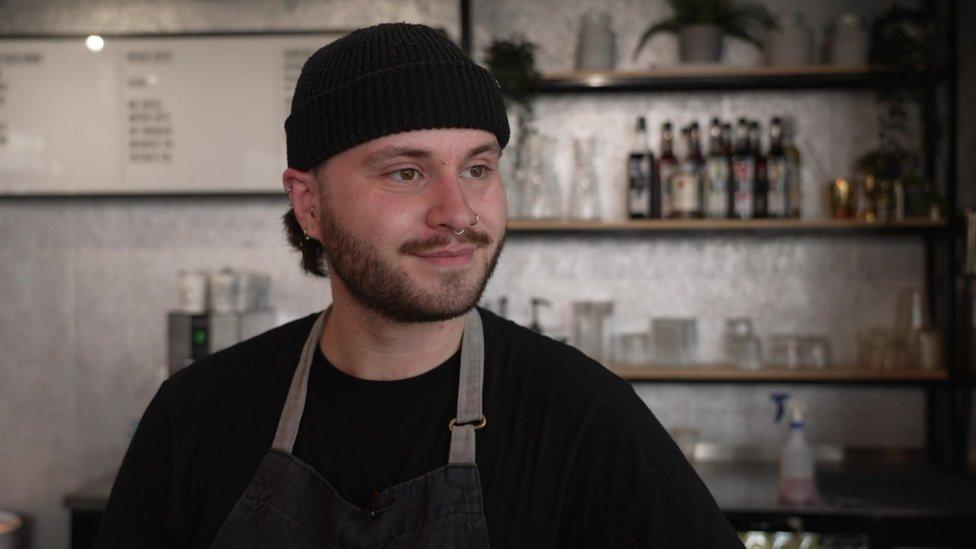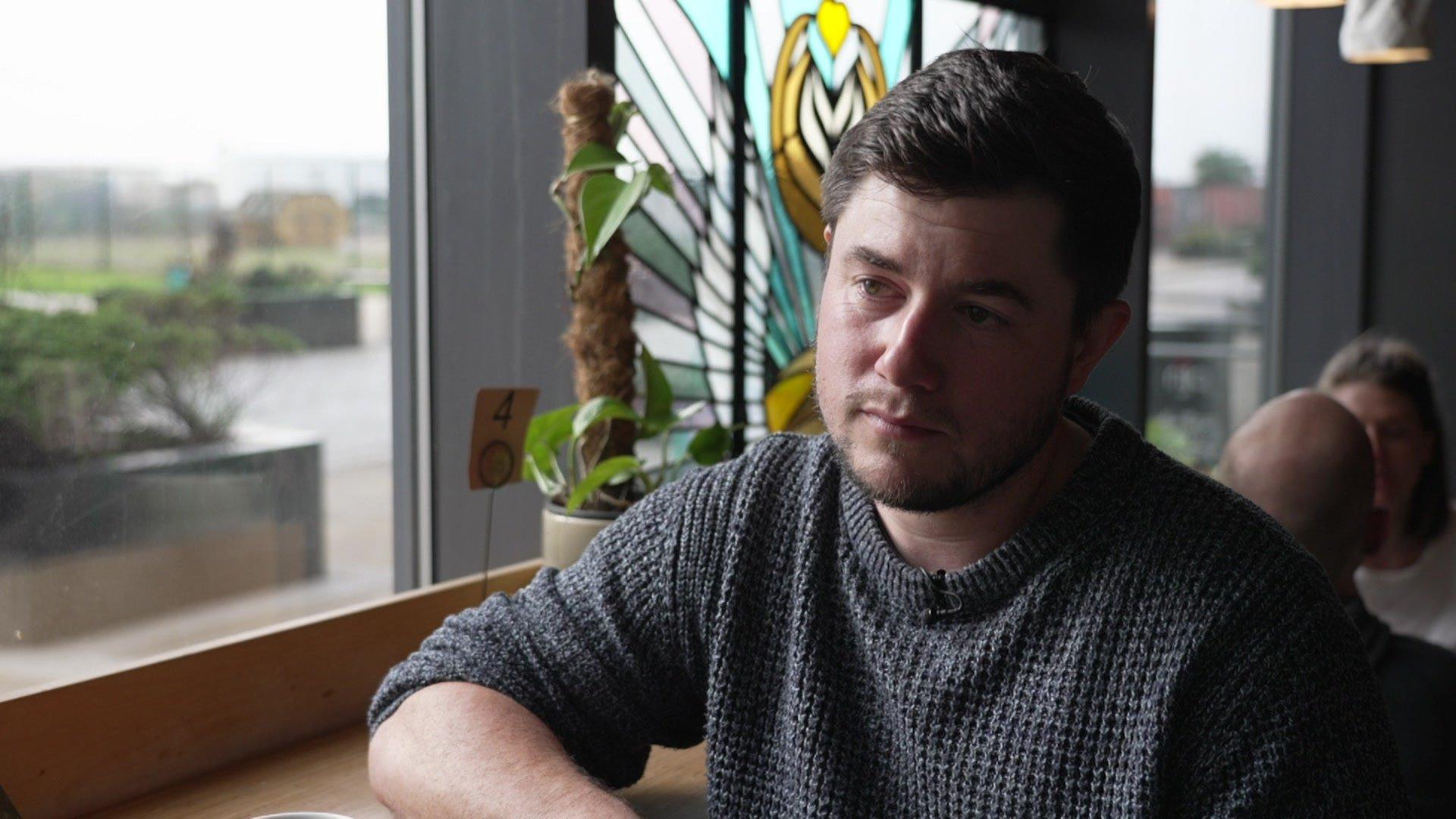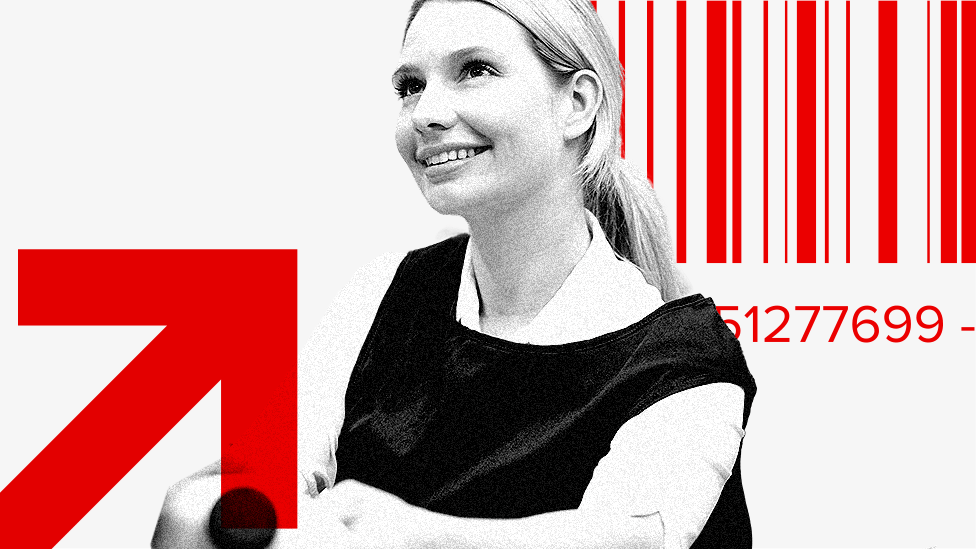Minimum wage rise gives boost to 2.7 million lowest-paid
- Published

The minimum wage set by the government, known as the National Living Wage, is increasing by more than £1 for the first time, providing a boost for 2.7 million low-paid workers.
The main wage rate is rising from £10.42 to £11.44 an hour and will apply to workers over 21 rather than over 23.
Younger workers will also see a rise in the rates that apply to them.
However, some businesses say the higher labour costs will make it harder for them to keep prices down.
The changes mean:
A full-time adult worker paid the minimum wage will see a pay rise worth £1,800 a year
A 21-year-old, who moves from the lower minimum wage rate to the main rate, will get a £2,300 rise
The minimum wage for 18-20-year-olds will increase from £7.49 to £8.60 an hour
Apprentices will also get an above-inflation rise, with hourly pay going up by more than 20%, from £5.28 to £6.40 an hour
Samuel, who works at Grindsmith coffee house in Salford, is one of those who will benefit from the increase.
The 26-year-old says before the pay hike he was left with about £400 at the end of the month after rent and bills were paid, but felt he was being left "shorter and shorter" each time.
"Maybe for a month you'll be like 'oh, I've got money this month' but next month will be a bit of a rough one," Samuel says.

He says the increase in the minimum wage will make up for the way prices have been rising, and help him afford more than just the essentials.
When setting the minimum wage, the government is guided by proposals from the Low Pay Commission.
The rising cost of living prompted the independent commission to recommend a bigger rise in the minimum wage.
The government accepted the recommendation, saying it meant the Conservatives' target to "end low pay", by lifting the minimum wage to two-thirds of average earnings, had now been met.
However, Samuel's employer, Peter Gibson, the director and co-founder of Grindsmith, says businesses are under strain from the rise in wage costs.
An increase for the lowest paid means he has to boost wages for other staff to maintain a differential, he says.

Grindsmith director Peter Gibson says cost rises may have to be passed on to customers
"With such a large increase this time, the minimum wage is now catching up to what we would pay our supervisors, so there must be some inflation in their wages as well.
"So for us, as a small business, it's not just a pay increase for minimum wage [workers], it's a pay increase across the company," Mr Gibson says.
To manage the rise in costs, the company will consider increasing prices and cutting staff hours, he adds.
"Our hand's being forced," he says. "It's not to make the company more money, it's to make the exact same amount of money, at the end, but with higher prices."
Business and trade minister Kevin Hollinrake conceded that rising wages meant rising costs for firms.
"We should never forget that private sector businesses shoulder the biggest burden in terms of paying the minimum wage," he told the BBC."But it is really good news for 2.7 million people."
The Resolution Foundation, an independent think-tank, says the minimum wage increase represented a rise of 7.8% in real terms - once inflation was taken into account - and a 9.8% rise in cash terms.
It says pay inequality had fallen significantly since 1999 when the minimum wage was introduced, making it "the single most successful economic policy in a generation".

Are you affected by the issues raised in this story? Share your experiences by emailing haveyoursay@bbc.co.uk, external.
Please include a contact number if you are willing to speak to a BBC journalist. You can also get in touch in the following ways:
WhatsApp: +44 7756 165803
Tweet: @BBC_HaveYourSay, external
Please read our terms & conditions and privacy policy
If you are reading this page and can't see the form you will need to visit the mobile version of the BBC website to submit your question or comment or you can email us at HaveYourSay@bbc.co.uk, external. Please include your name, age and location with any submission.
